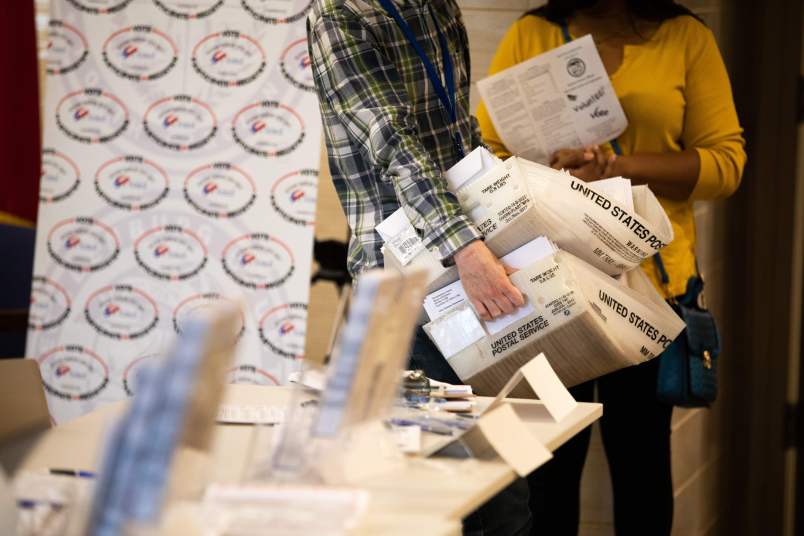Yet another election dispute in a potentially critical swing state has landed at the Supreme Court’s door step.
Republican legislative leaders, as well as the Trump campaign joined by the RNC, have asked that the Supreme Court to undo a six-day extension that the North Carolina State Board of Elections added to the state’s deadline for receipt of mail-in ballots.
The extension was a product of a consent decree the board agreed to in a lawsuit brought by voter advocacy groups. As part of the decree, the board also agreed to loosen up North Carolina’s witness requirement for absentee voting. The Republicans are asking the Supreme Court to block that accommodation for voters as well.
North Carolina is a swing state in the presidential election. It also has a very tight Senate race that could decide which party controls the upper chamber next year.
In previous elections, Black voters have made up a disproportionate number of those whose mail ballots were rejected, a recent ProPublica report found, while pointing specifically to the state’s witness requirement. Already, data from the 2020 general election has shown that Black voters are more likely to turn in mail ballots with deficiencies that white voters, even though they make a smaller portion of absentee voters so far, according to the ProPublica report.
Under the guidance from the board of elections that is now being challenged at the Supreme Court, when election officials receive ballots with missing witness information, they can reach out to the voter and have them sign a declaration that certifies the voter’s identity instead.
Beyond the impact the dispute stands to have on North Carolina voters, it will also give the Supreme Court another chance to weigh in on a controversial argument Republicans have been pushing to reverse accommodations granted to voters for the pandemic.
In this case, as well as in a dispute previously before the U.S. Supreme Court coming out of Pennsylvania, the Republicans are arguing that the looser rules are a violation of the U.S. Constitution’s Elections Clause, because they were put into place by an entity other than a state legislature.
In the Pennsylvania case, the entity was the state Supreme Court, which had extended the receipt deadline for mail ballots by three days. With Chief Justice John Roberts joining the three liberal justices, the U.S. Supreme Court deadlocked 4-4 on the dispute, which allowed the Pennsylvania Supreme Court ruling to stand for now. Neither side provided an explanation for why they voted the way did.
It’s unclear whether Roberts would swing towards the liberals in this case as well, since it’s a state board decision — rather than a ruling from a state Supreme Court — that the Republicans are now asking the justices to disturb.
(Like in the Pennsylvania dispute, a 4-4 decision would have the effect of leaving in place a federal appeals court decision upholding the North Carolina Election Board’s consent decree).
Another unknown is how a newly seated Justice Amy Coney Barrett would respond to the Republicans’ arguments about the Elections Clause. She is slated to be confirmed to the Supreme Court by the Senate early next week.
Roberts, who received the North Carolina requests because he has oversight of the Circuit containing the state, has asked for responses to the Republican requests by 3 p.m. Saturday.



